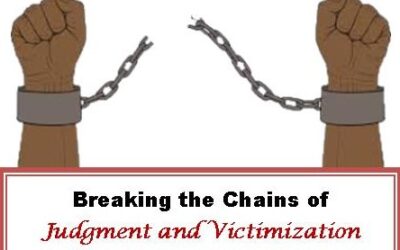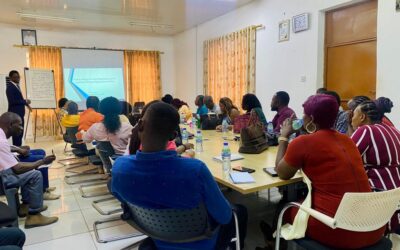The degree of silence and seeming secrecy surrounding the six RSLAF and other service personnel, namely; Private Tamba Sheku 18177830, Private Momoh Kargbo 18180259, Private Gbessay Koroma 18178603, Private Alpha Mansaray 18182001, Warrant Officer 2 Frederick Wallace Johnson and Private Mustapha Quee 18180146, having been apprehended for an alleged mutiny attempt, creates an obscure image on the minds of Sierra Leoneans who are now concerned about the fate of the detainees, who were arrested and detained in August 2013, in relation to an allegedly foiled mutiny attempt in Teko Barracks in Makeni.
The government of Sierra Leone, through a press release, had earlier informed the public that: “findings have now been submitted to the Office of the Attorney-General and Minister of Justice for necessary action.” Since then, one may not be wrong to say that the matter has been treated with laxity. This has left the public awe-struck, given the complexion of the matter as an issue of national security and a concern for the state’s stability. It is therefore afflicting to see the government drag its feet on a matter as grave as this.
We are not oblivious of the fact that the peace and security of the wider majority of Sierra Leoneans should not be risked for the interest whatsoever of a few, and that such an issue should be treated with utmost care. That does not however remove the assumption of innocence until proof of guilt; neither does it negate the need for a conventionally timely trial where the rule of law operates.
There is some legitimate apprehensiveness about the fact that for almost three (3) months now, no charges have been brought against the detainees, leaving room for doubt as to whether the prosecution in fact has enough evidence to bring charges against them. And that they are being held, since 12th September 2013, in what seems to be a secret location, begs the question of whether the constitution of Sierra Leone applies to the rights of military personnel?
We are also concerned that such procrastination in delivering justice to military personnel has the odd potential of undermining the peace and security of this nation, in the sense that it might sometimes provoke an ill-conceived esprit de corps. This is said in consideration of the fact that the military all over the world, is known for a peculiar sense of fraternity. It is hoped that without being verbose on this front, our concerns would be taken heed of.
Col. Michael Samura, Director of Public Relations and Information at the Ministry of Defence, is quoted in Vol. 17 of the Concord Times newspaper, Oct. 17th 2013 edition, to have said that the military was not in a hurry to charge the men to court “because this has to do with their lives”. On the contrary, I believe that is the more reason they should have been standing trial by now, otherwise the situation would only leave the public with a classic Catch-22: namely, what if the men are actually guilty and the government is shoving the matter under the carpet; or perhaps there is no genuine ground on which to establish their culpability, and someone is just holding another down because he is on top? By the doctrine of the rule of law, the constitution is the ultimate law of the land. The military have their own set disciplinary standards. Agreed. That should not however make anyone forget the indisputable fact that no other law or set of rules supersedes the 1991 Constitution of Sierra Leone.
My biggest gripe is that public officials, who should be concerned in one way or the other, seem either not to know or not want to say anything about an issue of such importance. This does not auger well for our justice system.
A classic example of the incomprehensible reluctance on the part of public officials to comment on the issue was demonstrated in the encounter between CARL’s monitors and Principal State Counsel, Monfred Sesay Esq., at the Law Officers Department when, in September 2013, in the absence of the Acting Director of Public Prosecution, Mr. Sesay was approached on the matter with a number of questions regarding the current status of the case. He refused to comment further than a dismissive comment: “I can see that you are very ambitious; unfortunately the Freedom of Information Bill has not been passed. On that note, I advise that you see the Attorney-General himself.” On leaving the office disenchanted, I couldn’t help but despondently ask my colleague: “is there any degree of irresponsibility or incompetence in giving out information such as relates to how many men were arrested, whether they have had the opportunity to speak to lawyers or family members, whether they have been charged of any particular offence, or whether they have ever been arraigned in any court since their arrest in mid-August, or is there anything so classified about any of the questions?” Not likely, I think.
Then there was an additional layer of disappointment when I asked the same questions of the Director of the Legal Directorate, Ministry of Defence, Col. I. M. Koroma, on an earlier visit. He also declined to comment further than stating that the men had been initially held by the military and that their case was now being handled by the CID, adding that he was sure they were not being held unlawfully because “ a Delay Report is being filed since investigation is still not completed”. A Delay Report is a sanction in military legal penal practice that justifies why the military still holds in detention an accused person without initiating legal action, pursuant to the Armed Forces of the Republic of Sierra Leone Act 1961, Section 77 (2). We do not however know how strictly this requirement is being adhered to or whether it has any limitation so as to prevent the use of the said authority ultra vires, and to ensure that it does not run repugnant to the constitutional provision on the fundamental human rights and freedoms of the individual as upheld in Section (17) of the Constitution of Sierra Leone, Act No 6 of 1991. After all, it is universally believed that a bylaw must not be repugnant to the general law of the country.
This disinclination on the part of public officials to make the public reasonably au fait with their work has grossly frustrated efforts to get relevant information and guidance on the said matter. Consequently, an issue of national interest has been rendered esoteric, if one cannot say it has degenerated into a mystery.
It is therefore judicious for the prosecution to proffer charges against the men and have them arraigned in the relevant court if there are indeed sufficient grounds to do so. Otherwise, it will only be proper to release them, if justice is to be had.



